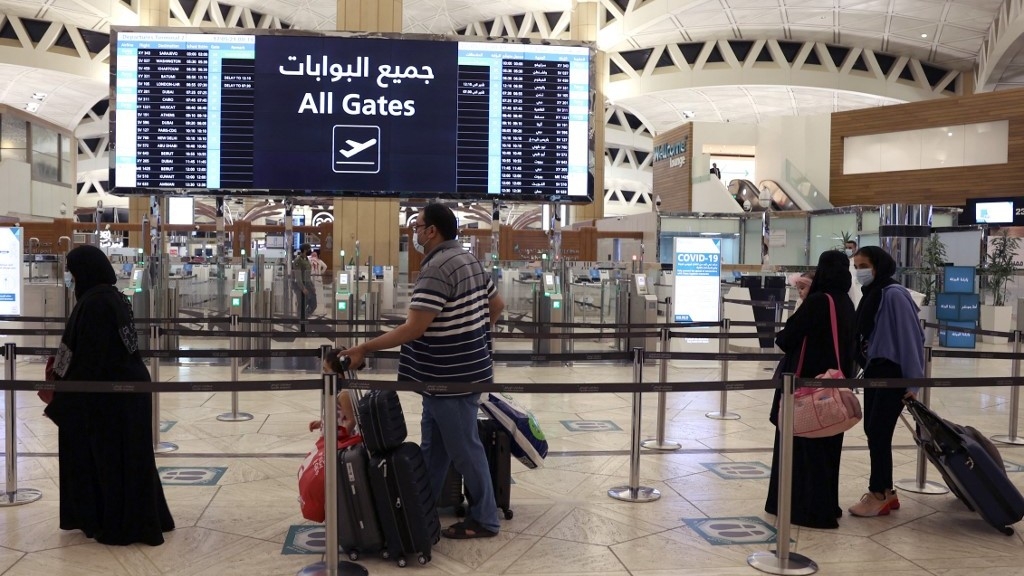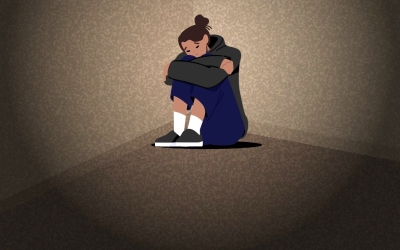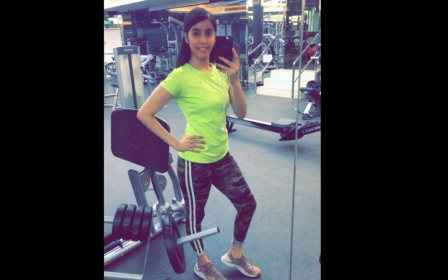Huge spike in Saudi Arabians seeking asylum since 2013, survey finds

The number of Saudi Arabians "fleeing their country and seeking asylum abroad" has spiked since 2013, according to a first-ever survey of its kind published on Thursday by the UK-based human rights organisation Alqst.
Alqst reported that the 10-year period up to 2023, during which UN data shows a significant increase in Saudi refugees and asylum seekers, has seen a marked rise in authoritarianism in the kingdom, particularly since King Salman ascended the throne and Crown Prince Mohammed bin Salman rose to power.
In 2013, UN data cited in the report recorded 575 Saudi Arabian refugees in 14 countries and 192 asylum seekers.
By the first half of 2023, that figure had surged to 2,100 refugees in 25 countries and 1,748 asylum seekers, representing an increase of over 400 percent of Saudi Arabians seeking protection.
While this diaspora community has been growing, Alqst said little is known about the challenges they face in host countries. There is also a lack of quantitative data on why they left and chose to stay away, which prompted the survey.
New MEE newsletter: Jerusalem Dispatch
Sign up to get the latest insights and analysis on Israel-Palestine, alongside Turkey Unpacked and other MEE newsletters
"It was really important for us to do the report as Saudis were seeing more and more people leaving the country," Lina Hathloul, Alqst's head of monitoring and advocacy told Middle East Eye.
"The new phenonomena had to be analysed and understood for different reasons: understanding the current state of things in Saudi Arabia, but also building a network of people living similar things."
The survey, conducted earlier this year, received responses from 100 Saudi Arabian citizens and former residents, with 67 completing it in part or in full.
Alqst acknowledged the small sample size but noted it was impressive considering the perceived risks of participating.
Some individuals declined to participate due to concerns over digital security or fears that relatives in the kingdom would be arrested or banned from travelling abroad.
Why they left
Over the past ten years, there has been a rise in refugees and asylum seekers globally which migration experts who spoke with MEE attributed in large part to war and climate change.
But Alqst said factors driving people to flee other countries didn't make sense in the Saudi context. “Saudi Arabia is not a war zone, nor is it a land of natural disasters or humanitarian crises,” the report said.
“So who are these Saudis in exile, and why are they leaving behind their wealthy country, whose leaders claim to be creating new economic opportunities and building a liberal, bright, modern future for their citizens?”
'I knew if I called the police, they would contact my guardian and just send me back'
- Respondent to Alqst's survey
Respondents told Alqst they left for various reasons, but most cited a lack of political or religious freedom and feelings of vulnerability due to their activism or that of a family member. Others left because of their sexual orientation.
A quarter of the respondents said they fled as a result of domestic violence, with several sharing stories of failed attempts to get help from authorities and noting the power of the kingdom’s male guardianship system over their lives.
One respondent said their father constantly threatened them, but they could not seek protection because the law “doesn’t recognise that I even have rights, and because of my father’s government connections”.
An American-born citizen said their Saudi Arabian stepfather had reported them as a runaway, presumably when they fled. “I knew if I called the police, they would contact my guardian and just send me back,” the respondent said.
This respondent believed their stepfather remained “a legitimate risk” to their safety, along with two brothers who would “undoubtedly seek retribution” for their women’s rights activism.
Nearly a quarter of respondents said they had sought help from official bodies in the kingdom without satisfaction. Half of those who sought help said they had received responses from authorities, but none felt the responses had been helpful.
One person said they called a human rights-focused organisation several times. "But unfortunately, they informed my attackers, which made matters worse."
Others said they felt they had no means of getting help from official bodies.
“I'm queer, so I can’t turn to the authorities. We don’t have that privilege,” one person said.
Once they reached their host countries, 47 percent reported suffering from mental health issues, including depression and post-traumatic stress disorder.
Finding affordable housing and jobs, as well as a lack of communication with their families, were also top issues facing Saudi Arabians in the diaspora.
Over 93 percent of those surveyed said they believed they would not be safe if they returned to Saudi Arabia, even if authorities gave them assurances of their safety.
Hathloul said most of the findings were not a surprise for her given Alqst's casework and research, but she was suprised by the numbers of people fleeing domestic abuse.
"It is one thing to live under a dictatorship and have to flee for fundamental rights, but is a country like Saudi, which is not lacking resources or coercive apparatuses, not able to protect people from their own families’ abuse?" she said.
"The hierarchical layers of oppression seems like a state strategy to maintain power."
Middle East Eye delivers independent and unrivalled coverage and analysis of the Middle East, North Africa and beyond. To learn more about republishing this content and the associated fees, please fill out this form. More about MEE can be found here.





